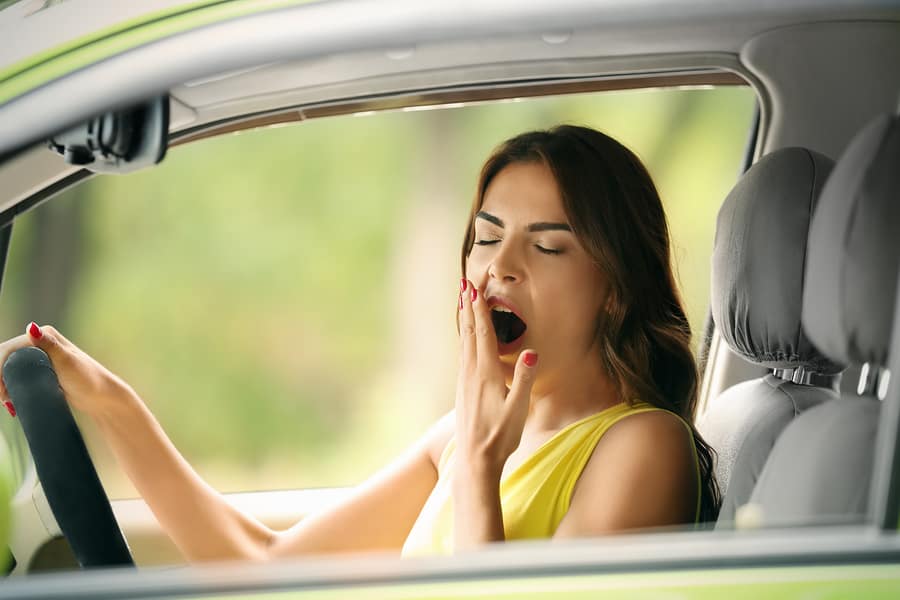
Driving drunk is a big no-no. Many people won’t drive when ill. But you may be shocked to find out that driving when you’re tired can be almost as dangerous.
With one in six crashes now being linked to driver fatigue, this is too significant a problem not to notice. As police can’t check for tiredness with a simple breath test – as with alcohol – it’s up to us all to ensure that we don’t get behind the wheel when we should be hitting the hay.
Table of contents:
- Why is driving when tired so dangerous?
- What does the law say?
- Some of the common causes of tiredness behind the wheel…
- Signs You’re Getting Tired
- And How to Avoid Getting Tired
- And Finally
Why is driving when tired so dangerous?
People are less alert when they’re tired. It’s that simple. Fatigue dramatically reduces reaction times, alertness and concentration. It’s harder to assess risks, which in turn leads to poor decision making. Then, if you do go to sleep behind the wheel, as you will do nothing to prevent the accident – such as swerving or emergency braking, the crash will be more dangerous, both for you and any vehicle – or worse – that suffers your impact.
It is estimated that 1 in 25 drivers have had an incident in the last 30 days where they may have dozed off behind the wheel. The highway police regularly reports that tiredness is a factor in thousands of crashes annually – with a significant percentage resulting in loss of life. Fatigue is said to triple your chances of a crash.
Driving without sleep is comparable to drink driving. Getting behind the wheel without sleep for over 20 hours, is said to be the same as driving with enough alcohol in your blood to put you over the legal limit.
You may have heard that sneezing behind the wheel is dangerous because you close your eyes for a fraction of a second. However, it’s actually possible to fall asleep behind the wheel and not even realise it for anything from a quick moment to 10 seconds. This is known as a microsleep. Some drivers even report being jolted awake by the rumble strip – especially seeing as the monotonous and boring environment presented by motorways and dual carriageways can often cause you to drop off.
What does the law say?
Whilst we’ve mentioned there’s no specific law against being tired behind the wheel, if something does happen, and it’s proven that you were asleep, then you could be charged with dangerous or careless driving. Should this result in a death then the maximum sentence is 14 years in prison.
The DVLA must be informed about medically induced sleepiness – or face a fine of £1,000.
Some of the common causes of tiredness behind the wheel…
The following factors that often contribute to fatigue include the following:
Lack of sleep or disturbed sleep – when you keep waking up in the night or noises like severe wind or rain cause you to only get intermittent patches of sleep.
Time of day – apparently people get sleepy around 10am in the morning or around 2pm – 3pm in the afternoon, and may find their eyelids getting heavy.
Stress – can be like a physical weight we carry around, draining us of energy, and inducing sleepiness and tiredness.
Changing sleep patterns – because of shift patterns, jet lag or even the clocks going forward or back, can cause you to become fatigued.
Driving for long periods – or any other monotonous activity, can cause you to become very tired. Repetitive sounds, including audiobooks can contribute to this effect.
Medication – check the back of your pills and medicine bottles. If the medication indicates drowsiness as one of the side effects, then avoid getting behind the wheel.
Creature comforts – you’ve got the heated seat. The comfy backrest, your favourite audio book playing… Is it any wonder that these relaxing features can see you drifting off behind the wheel.
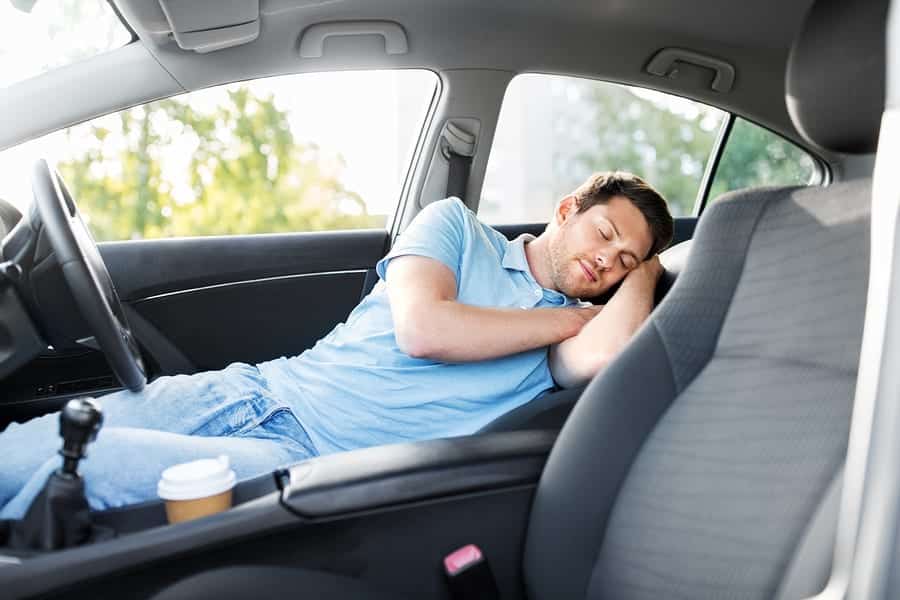
Signs You’re Getting Tired
If you start exhibiting any of the following symptoms, when you’re behind the wheel, then it may be time to pull into the next services, or lay by to get some rest:
Difficulty concentrating – if you can’t keep focused on the road, or your mind keeps flitting around, then this is often due to a lack of energy and mental stamina bought on by tiredness.
Yawning and stretching – the classic signs of sleepiness. Much like sneezing – be aware that yawning behind the wheel, may cause you to close your eyes.
Heavy eyelids – full of the dust of sleep. Trouble keeping your eyes open is a real warning sign of danger.
Eyes beginning to roll and lose clarity – as you nod off your eyes can roll back in your head, preparing to drift off into sleep.
Neck muscles relaxing – making the head droop as you literally nod off – the expression comes from the action. Watch out, as you suddenly jolt back into the moment giving you a sure indication that your body wants sleep.
Missing your exit – as you are unable to concentrate or are in a daze behind the wheel nearing a waking dream state.
Difficulty remembering the last few miles – the mind wanders as tiredness encroaches, making it difficult to keep your thoughts active and present. You may find yourself going into your head, and not realising how far you’ve travelled.
Drifting from your lane and going over the road – as you engage in microsleeps, momentarily losing control behind the wheel. If you hit the rumble strip, you know you’ve dozed off.
Increased chance of road rage – like a weary toddler who doesn’t want to go to bed – you’re more prone to volatile emotional outbursts when you need to get some shut eye.
And How to Avoid Getting Tired
If you know you have to go for a long drive, then it’s imperative you start getting ready a long time beforehand. Some of the following tips will help you start off with enough energy, and maintain your focus:
Get plenty of rest – the night before you have to set off. It’s recommended that you get between 7 and 8 hours sleep for a full tank.
Plan rest stops in your journey – do a little research, find out where the services are, and stop off to stretch your legs, have a drink and shake off any tiredness.
React to the signs – if you start to feel tired, then take immediate action and stop the car – so you can either stretch or even sleep.
The kids are alright – got kids in the car and feeling tired? Stop off at a park and let your partner, or any other adult in the car, take them off to play, whilst you get some valuable shut eye.
Drive as a team – not like you’re at Le Mans… but instead take turns behind the wheel, so that one of you can rest and alternate duties for the duration of the trip.
Leave night time for sleeping – if you usually sleep between 12pm and 6am then don’t try to drive this late. Your body, mind and energy levels will want to revert to routine. The older you get – the more this happens.
Don’t rely on the classic tricks – opening the window, talking and turning up the music are temporary fixes. If you actually feel tired, then the only cure to stop you from falling asleep, is to get some fresh air and take a proper nap.
Caffeinated drinks – actually might not help if you’re already wired on this stimulant. They can help short term – but if you need to really get some energy, consider drinking a coffee or energy drink, then getting a short nap, before waking feeling refreshed and energised.
And Finally
If there’s any doubt in your mind about your condition, don’t drive. Call up and explain the situation. People will be understanding about missed trips, and if something is incredibly important, then you can always put it off until later. Don’t travel tired – you wouldn’t travel drunk – so don’t put your life or the lives of others at risk.

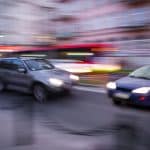
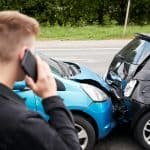


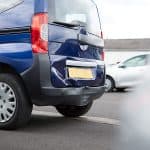
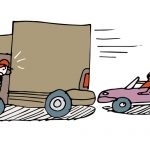
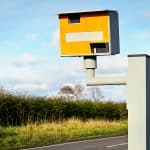

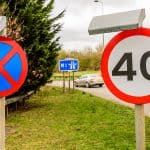
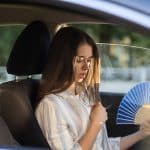
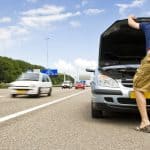
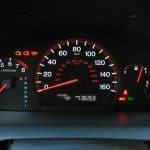
.png)